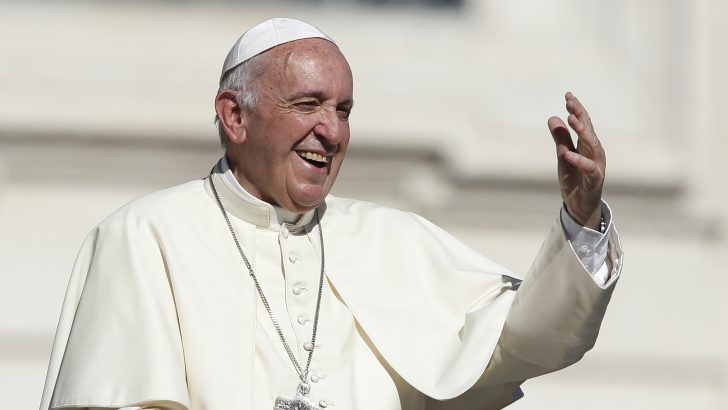With just 19 weeks to go to the opening of the International Eucharistic Congress in Dublin a visit from Pope Benedict XVI seems increasingly unlikely. Well, at least to the Republic. But, the Pope could still make a visit to the North as part of a carefully choreographed sequence aimed at demonstrating just how far the peace process has gone in normalising the region.
The June 10-17 Eucharistic Congress had long been touted as an occasion when the Holy Father would make his first visit to Ireland. It would’ve been an opportunity for the Pope to address the anger and sense of betrayal felt by many people as a result of the abuse scandals and a chance to offer hope for the renewal and reform of the Church in Ireland.
It’s by no means a certainty that the Pope will not visit the Republic. However, it is becoming increasingly unlikely by the day.
The more over-the-top portions of the Taoiseach’s speech post-Cloyne Report are certainly a factor. Another consideration is the general feeling that the Government in the Republic is at best disinterested (and probably hostile) about the prospect of a Papal Visit. The Tánaiste Eamon Gilmore has said the Government would respond if the Pope requested a visit to Ireland. His attitude is in stark contrast to that of neighbouring Britain where the government was delighted to extend a visit to Benedict for his 2010 State visit. In a similar fashion the communist authorities in Cuba have expressed their delight that the Pope will visit the island nation later this year.
A Papal visit to the North has long been seen as trip that would increasingly demonstrate the normalisation of relations between the Protestant and Catholic communities in the region. During his visit to Britain in 2010 Pope Benedict XVI frequently referred to Christianity “in these islands”. He also praised the engagement of both the Irish and British governments in the peace process. Since his election Benedict XVI is known to have taken a particular interested in the North. When it was announced that the process of decommissioning the weapons of the IRA was complete the Pope noted the move during his Sunday Angelus address describing it as “beautiful news”. He also made Seán Brady of Armagh a cardinal rather than Dublin’s Diarmuid Martin when many observers believes that the granting of a ‘red hat’ to Desmond Connell rather than Dr Brady in 2001 marked a decisive shift from Armagh to Dublin.
When the 2010 Papal visit to Britain was being discussed I was in a minority of commentators who predicted that the North would not be on the agenda (see here). At the time I pointed out (among other things) that the overwhelming majority of Catholics in the North self-identify themselves as Irish nationalists at least interested in Irish unity in principle.
“A Papal visit to the North as part of a State visit to Britain (with all the pomp of the British monarchy that would accompany such a trip) could significantly upset the sensibilities of Northern Catholics. The inclusion of Northern Ireland in such a visit (and the obvious exclusion of the Republic) could be seen in some circles as an extremely insensitive gesture,” I said at the time.
Some interesting things have been happening in the North that makes the prospect of a trip by Pope Benedict more normal in the context of healing traditional divisions. This evening, for example, First Minister Peter Robinson attended a GAA match for the first time. Last year Mr Robinson attended Mass for the first time (something that surely must have infuriated his predecessor Ian Paisley who regularly indulged in hate-filled rants against the Mass and Catholics). Moves like this clear the way for Mr Robinson to welcome the Pope to the North.
A visit to the North would obviously still afford the Pope the opportunity to address the abuse scandals and meet with abuse victims as he has done on visits to other countries. Of course, the Vatican would be running the risk that a trip to the North without crossing the border to Dublin could be interpreted as a snub to the Government of Enda Kenny or as a case of la brutta figura. At the same time, however, the current Government could certainly never be accused of expressing warmth towards a Papal visit.
It would raise the interesting prospect of Catholics from the Republic flowing across the border to welcome the Successor of St Peter to the region. It would also complete the unfinished business of John Paul II’s 1979 trip when a trip to the North was tragically impossible due to the civil conflict.


 Photo: CNS
Photo: CNS 